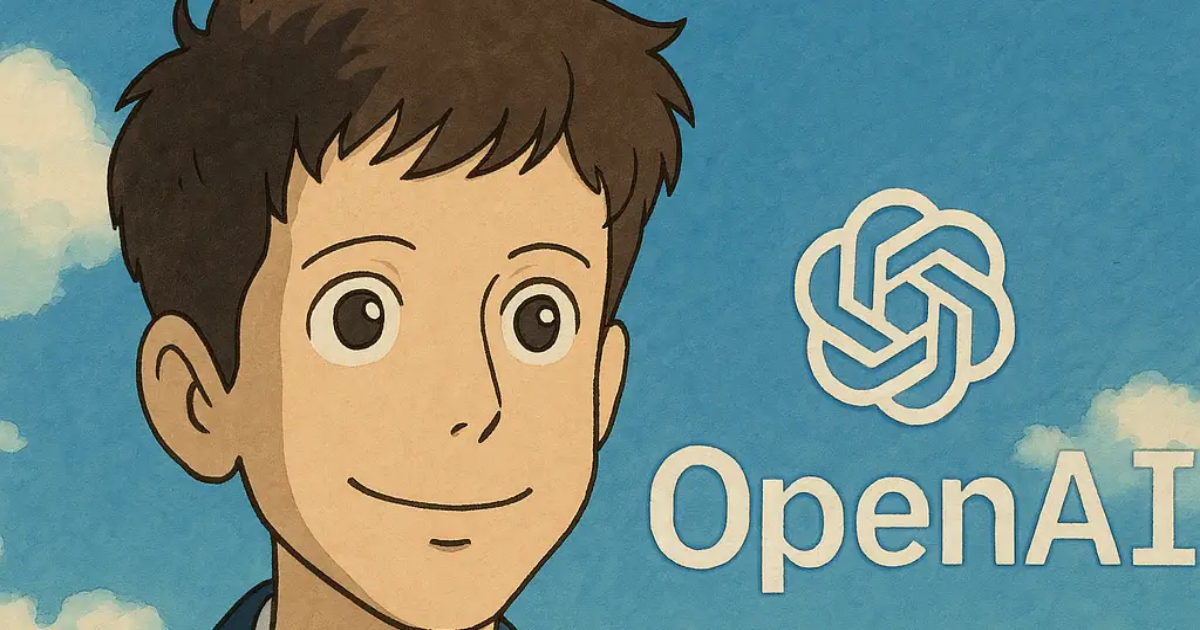From meme madness to copyright concerns, the release of OpenAI’s new image generator this week has been nothing short of dramatic.
Soon after “Images for ChatGPT” was unveiled on Tuesday, an X user said OpenAI’s 4o tool generated a “sexy man” but wouldn’t create “sexy women.” That caught the attention of OpenAI’s chief, Sam Altman, who blamed a “bug” and promised a fix.
Then came the tsunami of images generated in the distinctive style of the renowned Japanese animation house Studio Ghibli. X users flooded the platform with Ghibli-fied versions of their own photos, popular memes, public figures such as President Donald Trump, and scenes from films including “The Wolf of Wall Street.”
Even Altman joined in on the hype and swapped out his profile picture with a Ghibli-style photo of himself. The White House’s official X account jumped on the bandwagon, too, and shared a Ghibli-fied photo of a woman arrested by ICE for illegally entering the US.
Ghibli tsunami
At first it seemed like a lighthearted moment of things being reimagined through a Ghibli lens, until things took a darker turn.
OpenAI users Ghibli-fied images of historic events including JFK’s assassination, the 9/11 attacks, and World War II.
OpenAI said Wednesday that it had started blocking requests for Ghibli-style images and that it was taking a “conservative approach” by refusing user attempts to create images in the likeness of a living artist. An OpenAI spokesperson told Business Insider on Wednesday night that it still allowed users to generate images in “broader studio styles.”
Savvy users found workarounds. BI’s Pranav Dixit tried out the tool on Thursday using the paid-for version and found it would still generate several images in the Ghibli style.
OpenAI then decided to limit the number of images users of its free tier model could generate a day. Altman joked on X that OpenAI’s servers were “melting” from the surge in demand.
It now appears the free version of ChatGPT is refusing image requests entirely, citing copyright rules.
Copyright questions
While the internet had its fun, a fierce debate about whether OpenAI was unfairly using the work of artists including Studio Ghibli’s Hayao Miyazaki has begun.
Some X users criticized those Ghibli-fying images, arguing that Miyazaki, a famed Japanese artist renowned for his meticulous hand-drawn animations that can take years to create, poured his heart and soul into his work.
Ghibli is known for its animated features, which include “My Neighbor Totoro” and “Spirited Away.”
“Spirited Away” is one of Studio Ghibli’s animated features. Studio Ghibli
Ed Newton-Rex, the CEO of the nonprofit Fairly Trained, which certifies AI companies with fair training practices, described the controversy as a “takeoff moment for AI protests.”
It’s reminiscent of the Scarlett Johansson saga last year, when the actor threatened to sue OpenAI over a voice chatbot feature that many said sounded like her.
It raises the question of whether Ghibli-gate will be the latest copyright headache for OpenAI following a barrage of lawsuits from news outlets, authors, and musicians who say their work was used to train its models without consent.
Newton-Rex wrote in X post on Thursday that “obvious and egregious IP theft by AI companies has united authors and artists in outrage.”
“Suspect protests will only grow as the effects are felt by more & more professions,” he added.
There’s also growing concern about what the new tool means for graphic designers and AI image-generator startups.
Klarna CEO Sebastian Siemiatkowski said on X that he was “not as amused as many others” as OpenAI’s latest offering had “wiped out” some companies and had “serious implications for countless jobs.”
